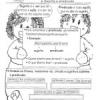
Democracy, government in which the people exercise sovereignty, a system in which citizens elect their leaders through periodic elections. Regime in which the people participate, equally, in the elaboration of proposals, development and creation of laws. This is the definition of democracy in the dictionary, but what does it have to do with school management?
Have you ever stopped to think that decisions made at school, such as the use of a certain type of uniform, schedules and content should not be “pushed” in the community? Which teachers should be consulted in setting curricula? Do employees need to give their opinion if the school structure is not safe for carrying out the work?
see more
Youth and Adult Education (EJA) is once again a federal priority
Teacher performance is a key factor for the full inclusion of students…
Managing a school is an action that is impossible to carry out in isolation. The participation of all in school management is essential for the interests of the community to be met. When strategies are established in order to integrate school and community, the latter is in tune with the institution that, in fact, transforms it.
Stop and think: what is the role of education? If your answer is that the educational role is in promoting strategies aimed at the practice of citizenship through training, you are correct. But, if in reality, your school does not achieve these goals, it is a sign that something needs to be corrected.
The definition of democratic school management conceptualizes it as the act of prioritizing collective participation in actions practiced at school. This means that decisions cannot be taken by the director and coordination in isolation, but through the participation of all those involved in the school community.
Employees, teachers, student associations, students and parents need to be aware of the strategies developed at the school. This is because the institution is inserted in a certain community and needs to take its specificities into account before imposing any measure.
The main characteristic of democratic school management is its decentralizing character, that is, the school becomes an open space for dialogue and the development of a horizontal relationship, without orders descendants. This type of structure does not impose command power in the form of hierarchies demonstrating that everyone has the power to participate.
The fact is that the democratic management model is not a simple charitable attitude. It is a management supported by the Federal Constitution of 1988 reinforced by the Law of Guidelines and Bases of National Education (Law 9.394/96), in addition to the National Education Plan (PNE). Thus, it is one of the principles to establish a quality education.
Above, we mentioned that one of the characteristics of democratic management is the absence of centralization of power. But not only that! This model has, among its main characteristics:
Among the main features we can highlight is participatory planning. In it, methods and strategies are developed in order to meet the specific needs of the school. In this way, practices are established in order to encourage everyone's participation, not just their role as spectators.
In this bias, there is transparency in decision-making, that is, actions are disclosed so that the entire collective becomes aware of them. How can the school do this? Through the school's physical spaces or social networks, including the political-pedagogical project, that is, the institution's set of strategies for the school year.
The elaboration of the PPP is closely linked to democratic school management. It is through it that the school will define guidelines that guide its work and guide the actions that contemplate the educational processes. The project is the most effective way for the school to assume the commitment to educate in view of the reality that guides the institution.
For all these reasons, it is to be expected that the PPP cannot be elaborated in an authoritarian way, that is, concentrated in the hands of directors and coordinators. All those involved in the teaching and learning process must participate in its creation, in order to build the democratic identity of the institution.
The promotion of democratic school management is possible as it integrates school and community. Therefore, managers must establish strategies that promote this integration, bringing together management, coordination, teachers, employees, parents, guardians and students.
Establishing democratic school management assumes that the institution itself must rethink its role as an educator. From then on, you need to develop sharing, get out of the comfort zone and institute ways to bring students, community and staff closer to management.
This can be done through simple and periodic strategies, the frequency of which, once again, must be discussed by the collective.
In short, democratic school management is characterized by sharing decisions. But, in addition, it is about creating spaces for dialogue in order to effectively dedicate the time of educators to the people involved in its management, ensuring that projects and school routine are of interest to all.


